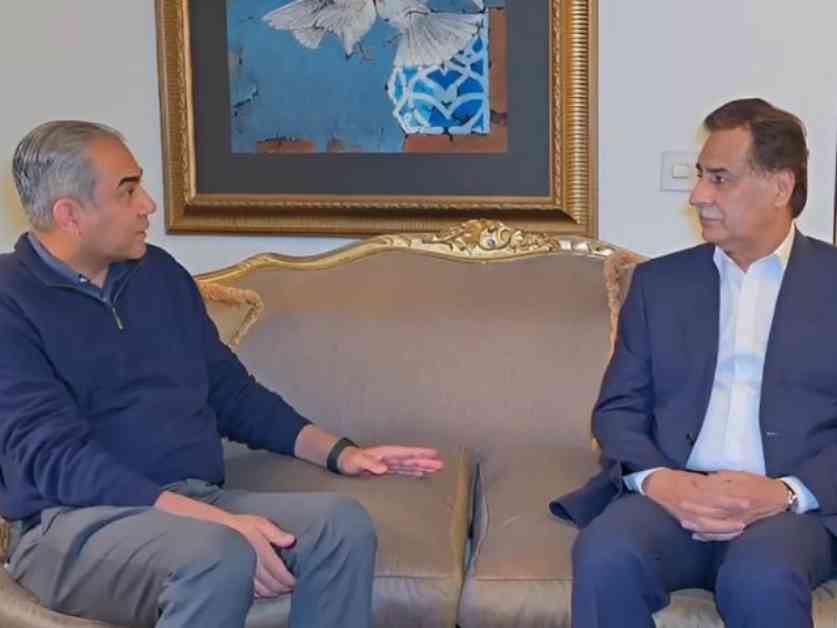Federal Interior Minister Mohsin Naqvi recently engaged in a pivotal meeting with Speaker of the National Assembly Ayaz Sadiq to delve into the negotiations between the government and Pakistan Tehreek-e-Insaf (PTI). Despite the government’s strides forward, PTI’s stance remained a focal point of discussion.
In this high-profile meeting, Minister Naqvi and Speaker Sadiq engaged in a robust exchange of ideas on various topics of common interest, political landscapes, and the country’s overall condition. Reports suggest that the conversation primarily revolved around the positive trajectory of government negotiations and PTI’s response to these advancements.
One key highlight of the meeting was Minister Naqvi’s commendation of Speaker Sadiq for his efforts in fostering unity among opposition and government factions. Naqvi lauded Sadiq’s pivotal role in bridging the gap between these two critical entities, emphasizing the significance of collaboration in the country’s political arena.
Embracing a tone of satisfaction, both leaders also delved into the burgeoning economic landscape of Pakistan. They delved into the various government initiatives aimed at addressing public concerns and fostering economic growth, showcasing a proactive approach to governance and policy-making.
However, tensions simmered as Minister Naqvi issued a stern warning to PTI regarding their planned protest on February 8, coinciding with the Champions Trophy match in Lahore. The party intended to observe a ‘black day’ to protest against alleged electoral malpractice in the previous year’s general elections, with public gatherings slated at the historic Minar-e-Pakistan ground.
“The government will urge PTI to reconsider its protest plans on February 8. Should the party persist, necessary actions will be taken,” asserted Minister Naqvi during his visit to the Mega Passport Centre on Peco Road in Lahore. He further criticized PTI’s propensity for staging demonstrations during foreign dignitaries’ visits, tarnishing Pakistan’s international reputation and hindering constructive political discourse.
Expert Opinions on Political Negotiations
In light of these recent developments, political analysts have weighed in on the intricacies of negotiations between the government and opposition parties. According to Dr. Sarah Khan, a renowned political scientist, these dialogues serve as a cornerstone of democratic governance, fostering compromise, and consensus-building for the greater good of the nation. She emphasized the importance of maintaining open channels of communication to navigate through political impasses effectively.
On a similar note, Dr. Ali Raza, a seasoned political commentator, highlighted the delicate balance between dissent and cooperation inherent in political negotiations. He underscored the need for both parties to demonstrate flexibility, empathy, and a long-term vision to address systemic challenges and propel the country towards sustainable growth and prosperity.
Implications of Political Discourse on Public Perception
Amidst these deliberations and confrontations, the public’s perception of political leaders and their actions remains a critical aspect of governance. As citizens witness the ebb and flow of negotiations, protests, and policy decisions, their trust in the government’s ability to uphold democratic values and address societal issues hangs in the balance. It is imperative for leaders on all fronts to exhibit transparency, accountability, and a genuine commitment to serving the people’s best interests to foster a thriving democratic culture.
As Minister Naqvi and Speaker Sadiq navigate the intricate web of political negotiations and public demonstrations, their actions reverberate far beyond the confines of bureaucratic corridors. The choices they make, the words they speak, and the alliances they forge shape the future trajectory of Pakistan’s political landscape, underscoring the enduring significance of effective governance, dialogue, and collaboration in building a prosperous and harmonious society.









